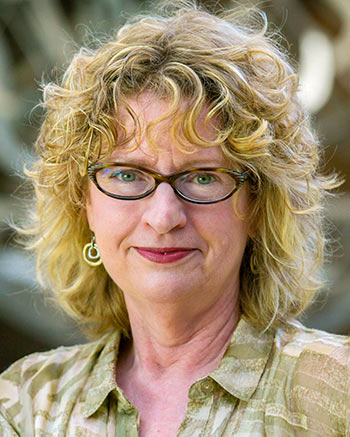
Nancy Tomes (NHC Fellow, 1999–2000; 2022–23; Distinguished Professor, Department of History, Stony Brook University)
November 14, 2023
Among the most distressing aspects of the recent pandemic has been the easy circulation of false and misleading information about the origins, prevention, and treatment of COVID-19. This “pandemic of poppycock,” as psychologist Steven Pinker dubbed it, exposed deep flaws in our methods of mass communication during a global public health crisis.
But in the aftermath of that crisis, Nancy Tomes suggests in this webinar that the advice to “just follow the science” is too simplistic. Instead we need to develop deeper understandings of public health science, the politics surrounding it, and the amplification of both in a complex media landscape. A historian with expertise both in public health and mass media, Tomes will provide an overview of why misinformation and disinformation have become such disruptive forces in our lives. She will share strategies to counter that disruption and develop new forms of public health literacy. Last but not least, she will invite participants to share their own experiences and strategies so we can enrich the toolkit of ideas and practices we bring to that effort.
Webinar Resources
Required Resources
- Wardle, Claire. “Misinformation Has Created a New World Disorder.” Scientific American 321, no. 3 (September 2019): 88–93. A short introduction to concerns about misinformation, disinformation, and mal-information written in 2019 before the COVID pandemic; describes the different elements that create our complex “information ecosystems.”
- Kupferschmidt, Kai. “A Divisive Disease.” Science 370, no. 6523 (December 18, 2020): 1395–97. An overview of information-related problems during the first year of COVID and what they revealed about the state of American science and society.
- Menczer, Filippo, and Thomas Hills. “Information Overload Helps Fake News Spread, and Social Media Knows It.” Scientific American 323, no. 6 (December 2020): 54–61. Although it uses a lot of technical language, this review provides a good overview of the “attention economy” we live in and the “cognitive biases” that make us vulnerable to misinformation and disinformation, especially online.
- “It’s Time To Talk About ‘Pandemic Revisionism’.” Ezra Klein Show, Aug 29, 2023. Podcast. 65 minutes. Here’s a longer, fascinating conversation between a science journalist (Wells-Wallace) and an epidemiologist (Jetelina) about why issues such as masks, school closures, and vaccinations became so hotly debated during the COVID pandemic.
- Tomes, Nancy. “‘Destroyer and Teacher’: Managing the Masses during the 1918–1919 Influenza Pandemic.” Public Health Reports 125, supplement 3 (2010): 48–62. Provides an overview of the “Great Influenza” in the US and the ways that scientific uncertainty, changing communication technologies, urbanization combined with wartime to complicate public health responses to the pandemic.
- Stern, Alexandra, Martin S. Cetron, and Howard Marke. “Closing the Schools: Lessons from the 1918–19 U.S. Influenza Pandemic.” Health Affairs 28, no. 6 (September 29, 2009): 1066–1078. Writing in 2009, when a new variant of influenza seemed posed to spread, three historian-experts on the 1918–1919 pandemic analysis the use of school closures to slow the influenza’s spread.
Additional Resources
Consult this mini-syllabus for additional suggestions of further reading and resources on topics discussed in this webinar.
Subjects
History / Journalism and Communication / Medicine / Medical Humanities / Misinformation / Disinformation / Public Health / COVID-19 / Information Literacy /
Rights

This work is licensed under a Creative Commons Attribution 4.0 International License.